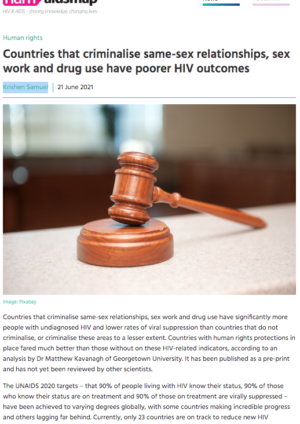Countries that criminalise same-sex relationships, sex work and drug use have poorer HIV outcomes
Countries that criminalise same-sex relationships, sex work and drug use have significantly more people with undiagnosed HIV and lower rates of viral suppression than countries that do not criminalise, or criminalise these areas to a lesser extent. Countries with human rights protections in place fared much better than those without on these HIV-related indicators, according to an analysis by Dr Matthew Kavanagh of Georgetown University.
